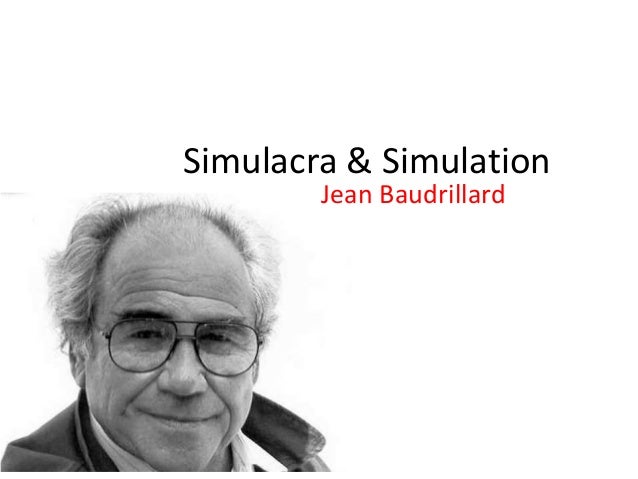

We are, to use Baudrillard’s semiotic terminology, stranded in a world without referents we live in a sea of signs that are disconnected from any real thing. The reality is no longer reachable and thus neither reality nor illusion have any meaning any longer. There is no longer any distinction between illusion and reality. And that’s why it’s so terrifying.īaudrillard tells us that the binary opposition between illusion and reality implodes with the entry into the postmodern age.

It is a straitjacket it’s a prison that we are locked into. Because with Baudrillard’s simulation there is no Zion. It’s a neat hero’s arc.īut that’s not what Baudrillard is talking about at all.īaudrillard’s simulation is much more insidious and terrifying. The red pill takes you out of the illusion and into reality. For Baudrillard, The Matrix is dealing with the problem of illusion not the problem of simulation.īecause The Matrix is really a question of illusion right? You have the virtual reality that is the matrix which seems real and then you have the actual reality of Zion.
SIMULACRA AND SIMULATION FULL PDF MOVIE
This is one of Baudrillard’s (numerous) bones to pick with the movie series. It’s essentially an updated version of Descartes’s epistemological demon. The simulation is this technological virtual reality world that we are all plugged into. The idea of the simulation is super easy to define in The Matrix. This is the first major difference between Baudrillard’s book and the Matrix movies. So I started with the term simulation and tried to define what the word meant and I immediately found myself in the weeds. When I sat down to write this article, I thought I’d tackle three key ideas in the book: simulation, simulacra and hyperreality. Because the thing about this book is that it’s really hard to pin down. On the other hand maybe it wouldn’t have been. I fully believe that if Simulation and Simulacra had been written as a novel it would be spoken about with 1984 and Brave New World-I suppose in a bastardised form it is with the Matrix movies. When I first read the latter, I had the sense that 90% of the book was going over my head but the 10% that was seeping in was reordering my mind.īaudrillard’s work was actually quite a neat completement to my other obsessions over the past year: Jamie Wheal, Tristan Harris and above all Daniel Schmachtenberger. It reminds me of my first dabblings in philosophy reading Camus’s Myth of Sisyphus and later Nietzsche’s Beyond Good and Evil. It’s a small book but my god it’s very far from being easy. Simulation and SimulacraĪfter rewatching the Matrix movies a couple of months ago, I thought it might be a nice idea to have a poke into Jean Baudrillard’s iconic work Simulation and Simulacra. It is the most accurate diagnosis of the slope we find ourselves free-falling down with our culture’s departure from modernity into the unreal simulation that is the postmodern condition. Simulation and Simulacra is the dystopia of our present, a dystopia that is so all-encompassing and yet impossibly hard to grasp that we have walked blindly into it. This Baudrillardian idea of simulation is to my mind one of the most hauntingly prescient philosophical ideas you’ll ever come across-more relevant and scary than either 1984 or Brave New World. In this instalment we are going to be exploring what Baudrillard means by this term simulation and at why Baudrillard thinks that we are already walled inside a simulation - permanently cut off from reality. This is the book that Morpheus quotes from, that we see Neo hiding the computer disks he sells inside in the first Matrix and it’s the one book that the Wachowski siblings made required reading for everyone on the crew of the Matrix movies.īut despite this famous example of the mainstream idea of the simulation being directly inspired by Baudrillard’s work, what the French postmodern philosopher means by the term simulation is something much more insidious and much scarier than what we find in the Matrix movies. Although what he means by simulation and what you mean by simulation might be two very different things (which is funny considering the most influential example of a simulation - The Matrix - was directly inspired by Baudrillard’s 1981 work Simulation and Simulacra.

Are we all living in a simulation? If you were to ask the French philosopher Jean Baudrillard this question, his answer would be a resounding yes.


 0 kommentar(er)
0 kommentar(er)
